Keynotes and Plenary Speakers
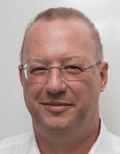 |
Ron Kikinis M.D.
Director of the Surgical Planning Laboratory, Department of Radiology, Brigham and Women's Hospital, Harvard Medical School, Boston, MA
"Medical Image Computing"
The presentation will provide an overview over the field of Medical Image Computing:
(1) What is Medical Image Computing (MIC)?
(2) Uses of MIC: Neuroimaging, Radiology, Interventions
(3) Technological foundations of MIC
|
|
Dr. Kikinis is the founding Director of the Surgical Planning Laboratory, Department of Radiology, Brigham and Women's Hospital, Harvard Medical School, Boston, MA, and a Professor of Radiology at Harvard Medical School. This laboratory was founded in 1990. In 2004 he was appointed Professor of Radiology at Harvard Medical School. In 2009 he was the inaugural recipient of the MICCAI Society "Enduring Impact Award". On February 24, 2010 he was appointed the Robert Greenes Distinguished Director of Biomedical Informatics in the Department of Radiology at Brigham and Women's Hospital. On January 1, 2014, he was appointed "Institutsleiter" of Fraunhofer MEVIS and Honorary Professor of Medical Image Computing at the University of Bremen.
Dr. Kikinis is the Principal Investigator of the National Alliance for Medical Image Computing (NA-MIC), a National Center for Biomedical Computing, an effort which is part of the NIH Roadmap Initiative), and of the Neuroimage Analysis Center (NAC), a Biomedical Technology Resource Center funded by (NIBIB). He is also the Director of Collaborations for the National Center for Image Guided Therapy (NCIGT), which is jointly sponsored by NIBIB. He has served and is serving as member of external advisory boards for a variety of centers and research efforts. He is the Principal Investigator of 3D Slicer, a software platform for single subject image analysis and visualization.
During the mid-80's, Dr. Kikinis developed a scientific interest in image processing algorithms and their use for extracting relevant information from medical imaging data. Since then, this topic has matured from a fairly exotic topic to a field of science. This is due to the explosive increase of both the quantity and complexity of imaging data. Dr. Kikinis has led and has participated in research in different areas of science. His activities include technological research (segmentation, registration, visualization, high performance computing), software system development, and biomedical research in a variety of biomedical specialties. The majority of his research is interdisciplinary in nature and is conducted by multidisciplinary teams. The results of his research have been reported in a variety of peer-reviewed journal articles. He is the author and co-author of more than 310 peer-reviewed articles.
Before joining Brigham & Women's Hospital in 1988, he trained as a resident in radiology at the University Hospital in Zurich, and as a researcher in computer vision at the ETH in Zurich, Switzerland. He received his M.D. degree from the University of Zurich, Switzerland, in 1982.
Full Length Curriculum Vitae, 05-2014. |
 |
Cornelia Rudloff-Schäffer
Präsidentin des Deutschen Patent- und Markenamts, München
"Patentschutz für Innovationen im Bereich Biomedizintechnik" |
|
Cornelia Rudloff-Schäffer, President of the German Patent and Trade Mark Office (born in Bad Camberg/Taunus in 1957)
In 2009, Cornelia Rudloff-Schäffer, who has a law degree, became President of the German Patent and Trade Mark Office in Munich. From 2001, she held various leading positions at the office. Prior to this, Cornelia Rudloff-Schäffer was Head of Section of “Trade Mark Law, Law Against Unfair Competition” at the Federal Ministry of Justice in Bonn and Berlin. Her earlier career included spells at a legal Max Planck Institute and at the Department of Industrial Property Law of Ludwig-Maximilians-Universität in Munich. |
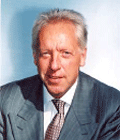 |
Prof. Dr. Hanns-Christian Gunga
Charité – Universitätsmedizin Berlin
Anforderungen an die medizinische und medizintechnische Versorgung unter
Langzeitbedingungen im Weltraum |
|
Professor Hanns-Christian Gunga studied geology and palaeontology at the Westphalian Wilhelm University in Münster and then medicine in Münster and at the Freie Universität Berlin (FU Berlin). He joined the FU Berlin in 1987 as assistant in the applied physiology group at the Department of Physiology, headed by Prof. Dr. Karl Kirsch, became assistant lecturer in 1992 and finished his habilitation at FU Berlin in 1997.
In 2004, he became Full Professor at Charité - Universitätsmedizin Berlin, at the Department of Physiology, headed by him since 2015. The research of Hanns-Christian Gunga is focussed on space medicine, on blood, cardiovascular and renal physiology as well as on comparative physiology in extreme environments. Since 2000, he is speaker of the Center for Space Medicine and Extreme Environments Berlin (www.charite-in-space.de). |
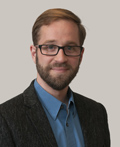 |
Dr. Conor L. Evans
Massachusetts General Hospital
A Harvard Medical School affiliate
“Solving Medical Problems with Photomedicine” |
|
Dr. Conor L. Evans received his degrees from Brown University (BS in Physical Chemistry) and Harvard University (PhD in Chemistry). He carried out his postdoctoral training research under the supervision of both Tayyaba Hasan and Johannes de Boer in the application of advanced microscopy to cancer research. He now serves as an Assistant Professor at the Wellman Center for Photomedicine of Harvard Medical School at the Massachusetts General Hospital. The Evans lab’s research is focused on the development and clinical translation of optical microscopy and spectroscopy tools, with specific interests in ultrasensitive detection of molecular markers, label-free imaging of tissues, and the imaging and quantification of tissue oxygenation. Dr. Evans has led the use of coherent Raman imaging technologies in biomedicine, and was the first to apply this imaging toolkit for the real-time visualization of lipids in skin in vivo. He has developed a number of imaging devices and methods, including coherent Raman imaging, time-lapse Optical Coherence Tomography, hyperspectral confocal microscopy, tissue clearing methods, and “smart” sensing bandages. He currently holds 9 patents and patent applications and has more than 30 peer-reviewed publications. A recipient of the NIH Director’s New Innovator Award, his recent efforts in the synthesis of bright oxygen sensors has resulted in the creation of four new porphyrin molecules that are currently being translated for clinical use. He is a Royce Fellow of Brown University and has been honored with several awards, including the Goldwater Scholarship, NASA Space Grants, and the National Science Foundation Graduate Fellowship. Dr. Evans has taught Physical Chemistry Laboratory at Harvard University, is a faculty member for the Madrid-MIT M+Visión Consortium, is a planning group member of the Harvard Ludwig Center, and an affiliate faculty member of the Harvard Biophysics Program. |
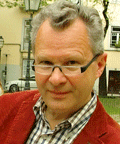 |
Prof. Dr. Christoph Rehmann-Sutter
Institut für Medizingeschichte und Wissenschaftsforschung
Universität zu Lübeck
“Do we really understand what we can build? A philosophical argument with Richard Feynman and Craig Venter about Synthetic Biology." |
|
Christoph Rehmann-Sutter is Professor for Theory and Ethics in the Biosciences at the University of Lübeck
Born in 1959 in Laufenburg/Switzerland, Christoph Rehmann-Sutter first studied Molecular Biology with a Diploma from the Biocenter at the University of Basel (Switzerland) and then also Philosophy and Sociology at the Universities of Basel and Freiburg im Breisgau. From 1989–1996 he worked as a research assistant for bioethics in the group of Prof. Werner Arber at the Department of Microbiology, Biocenter of the University of Basel. In 1996 he established a Unit for Ethics in the Biosciences at the University of Basel, where he did systematic bioethical research and teaching. In collaboration with Jackie Leach Scully he worked on the ethics of gene therapy, genetic testing and embryo donation for stem cell research, with Eva Neumann-Held on the philosophy of genomics. 1997–1998 he was research fellow at the Department of Environmental Science, Policy and Management (ESPM) of the University of California at Berkeley. In 2001 he has been elected by the Swiss Government Chairman of the Swiss National Advisory Commission on Biomedical Ethics. Diverse visiting professorships: Policy, Ethics and Life Sciences (PEALS) Research Centre, Newcastle University (2008), London School of Economics (2009–2011), Department of Social Science, Health and Medicine, King's College London (since 2012).
|
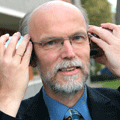 |
Prof. Dr.rer.nat. Dr.med. Birger Kollmeier
Cluster of Excellence Hearing4All, Universität Oldenburg, HörTech gGmbH und Fraunhofer IDMT Projektgruppe für Hör-, Sprach- und Audiotechnologie, Oldenburg
"Cocktail Parties and model-based Hearing aids: Towards a scalable binaural Hearing device" |
|
Birger Kollmeier obtained his Ph.D. in physics 1986 and his M.D. -Ph.D. in medicine in Göttingen/ Germany. Subsequent to his „Habilitation“ in physics 1991 he was appointed as full professor in physics at the Universität Oldenburg and head of the medical physics group in 1993. He is the scientific director of the Hörzentrum Oldenburg, the speaker of the center of competence “Hearing Aid system technology (HörTech)”, since 2008 head of the Fraunhofer IDMT project group “Hearing, Speech and Audio Technology”, and since 2012 speaker of the Cluster of Excellence “Hearing4all”. He supervised more than 50 Ph.D. theses and was awarded several scientific prizes, including the Alcatel-SEL research prize for technical communication and the German Presidents prize for technology and innovation (Deutscher Zukunftspreis) in 2012. |
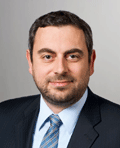 |
Prof. Vasilis Ntziachristos
Technische Universität München, Chair of Biological Imaging & Helmholtz Zentrum München, Institute of Biological and Medical Imaging
"A new era for optical imaging: multispectral optoacoustic tomography (MSOT)" |
|
Prof. Vasilis Ntziachristos holds the chair for Biological Imaging at Technische Universität München and is the director of the Institute of Biological and Medical Imaging at Helmholtz Zentrum München, both in Munich / Germany. Prior to this appointment he was faculty at Harvard University and the Massachusetts General Hospital. He received his masters and doctorate degrees from the Bioengineering Department of the University of Pennsylvania and the Diploma in Electrical Engineering from the Aristotle University of Thessaloniki, Greece. Professor Ntziachristos serves as chair in international meetings and councils and in the editorial boards of several scientific journals. He has received numerous awards and distinctions, including the Leibniz Prize 2013 and the Erwin Schrödinger Prize 2012, and he was named one of the world’s top innovators by the Massachusetts Institute of Technology (MIT) Technology Review in 2004. His main research interests involve the development of optical and opto-acoustic methodologies for probing physiological and molecular events in tissues using non-invasive methods. |